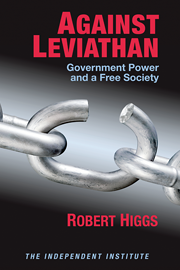Although President George W. Bush declared the U.S. military conquest of Iraq a success more than two months ago, the killing continues on a daily basis, and so do U.S. government efforts to paint a smiling face on the death, destruction, and disorder its invasion has brought to the hapless Iraqi people. According to Bush and U.S. proconsul L. Paul Bremer III, life is returning to normal in Iraq, but if a lack of electrical power, basic sanitation, and public safety is normal, then the unfortunate Iraqis must be praying for the quick advent of abnormality.
Bush vows that the continuing attacks on U.S. troops in Iraq will not dissuade him from the “restoration” of the conquered country. He insists that the attackers consist only of hardcore Baathists and “terrorists.” Against these holdouts, the U.S. military commander Lt. Gen. David McKiernan promises to “strike hard and with lethal force” whenever and wherever the opportunity arises to crush the opponents of the U.S. occupation.
This official characterization of the situation on the ground, however, rings increasingly hollow. Even the casual reader of news reports has learned that the huge U.S. campaigns against alleged resisters—Operation Peninsula Strike, Operation Desert Scorpion, and most recently Operation Sidewinder—amount to ill-informed, indiscriminate efforts marked more by overwhelming military force and massive firepower than by genuine understanding of the actual situation. Equipped only with sledge hammers, the Americans are now trying to perform brain surgery, and they are not having much success.
How could it be otherwise? U.S. soldiers are neither trained nor inclined to act as police. They know nothing about how to investigate crime, identify proper suspects, and apprehend them without wreaking enormous harm on innocent bystanders. In Iraq the Americans operate under the tremendous handicap of not understanding either the language or the customs of the people they seek to control. Nor are the U.S. troops a corps of architects, construction engineers, public health experts, and social workers. They are trained killers. To expect them to “reconstruct” Iraq is silly. The army’s job is to destroy, not to build.
Placed in an untenable position, the troops now patrol Iraqi cities and maintain checkpoints on the streets, making themselves targets of opportunity for any Iraqi who chooses to attack them. Obviously, Iraq is flush with military rifles, rocket-propelled grenades, and other weapons, and men trained to use them. In this hostile and dangerous situation, U.S. troops naturally get itchy trigger fingers. Sweltering miserably in their body armor, they become more inclined, as the New York Times’ Edmund L. Andrews reported on July 2, “to shoot first and ask questions later.”
Andrews also notes that the frequent U.S. shootings and other assaults on Iraqis are “leaving a trail of bitterness, confusion and hunger for revenge.” How could they fail to do so? In recent incidents a multitude of innocent people have been mistakenly targeted, hit by stray bullets, and harmed by explosions and fires. In a village north of Baghdad, for example, a family of shepherds was shot by U.S. tanks. Elsewhere, a family was killed while working to extinguish fires that U.S. flares had started in a wheat field.
Traffic checkpoints in the cities provide venues for recurrent incidents of trigger-happy soldiers loosing their firepower on—well, who’s to say who the targeted persons are? U.S. Army Major Scott Slaten, a public affairs officer, declares that the drivers running checkpoints are “usually criminals, Baathists, or people fleeing crimes who didn’t think they would get caught,” but how can the frightened young corporal at a checkpoint possibly know the character or intentions of the driver he guns down in an instant reaction?
We’re not exactly dealing with due process when a nervous soldier lets loose a burst from a heavy machine gun, as one did recently in a Baghdad incident that an Iraqi witness described by saying “They killed innocent people for nothing.” Witnesses said no signs ordered drivers to stop, and drivers easily might have missed or misunderstood the soldiers who waved them down from the roadside. In another recent checkpoint incident, witnesses said the car had stopped before a U.S. soldier fired on it with a heavy machine gun, wounding its elderly driver as well as the occupants of a nearby vehicle hit by stray bullets. Machine guns and densely occupied urban areas make a lethal combination.
Americans puzzled by why conditions won’t settle down in Iraq seem mesmerized by official U.S. propaganda depicting the conquest and occupation of the country as a “liberation.” To solve this puzzle, we need only to turn the situation around in our own minds. Imagine that the Iraqi army now controls your town. Imagine that from time to time for no apparent reason, they burst into homes, kicking, clubbing, and shooting the occupants and hauling some off as captives to unknown destinations for unknown reasons. Imagine that the Iraqis passing by your home train their tank cannons on it, that the Iraqis on the streets aim their automatic rifles at you and your children as you go about your shopping. Imagine that from time to time they shoot a 12-year-old child foolish enough to peer at them at the wrong time in the wrong place. Imagine that when you and your neighbors peacefully protest their actions, they sometimes fire wildly into the crowd of demonstrators and the adjacent buildings. Think about all these sorts of horrors, which now compose day-to-day life for the Iraqi people, and put yourself in their place.
Then ask yourself: when you choose to fight back against the foreigners’ brutal occupation of your country, your city, and your neighborhood, to resist the desecration of your place of worship, to seek revenge for the arbitrary slaughter of your loved ones, does anyone have the right to call you a terrorist?



















